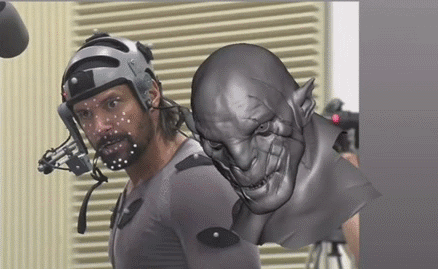The Characteristics of Peter Jackson's Tolkien Trilogies

Peter Jackson is a film director from New Zealand. He wrote, directed and produced both The Lord of the Rings and The Hobbit trilogies - he's best known for his Tolkien adaptations, which is why I've chosen to compare the two trilogies, mainly the first installments of each one.
There are many similarities between the two films, considering they're part of the same cinematic universe.
Peter Jackson's Tolkien films have a very distinct artistic style. Jackson is known for the CGI and prosthetics in his films - for example, many of the orcs and Uruk-hai in Lord of the Rings were done using makeup and practical effects, while the orcs in The Hobbit were mainly CGI. All the epic battle scenes and establishing shots were done using CGI effects. Peter Jackson's Tolkien films both have heavy use of effects to accurately portray them, but the effects don't take away from the story like many films have done - they're impressive, but never the main focus of Jackson's films. During the filming of both trilogies, Jackson would tell the actors to keep doing takes of the same scene over and over again until it was exactly what he'd envisioned - he is a perfectionist with a highly active imagination, and that made his Tolkien films what they are. The Elijah Wood interview below does a good job of illustrating the relationship between the director and actors during the filming of The Lord of the Rings.
Both the protagonists in Fellowship of the Ring and An Unexpected Journey, Frodo and Bilbo, follow the archetypal pattern of the Hero's Journey. The protagonists reluctantly leave their homes and lives behind to embark on an epic quest - in Frodo's case it's to save the world, and in Bilbo's it's to help the dwarves reclaim their mountain home. During their respective quests, both protagonists overcome many obstacles and discover their identities, coming out in the end as different people.

The Lord of the Rings and Hobbit trilogies share a lot of the same thematic content throughout the films. The most obvious theme is fantasy - Elves, orcs and the like - but there are many more complex themes in both trilogies. One big recurring theme is Good vs Evil - this is apparent in Lord of the Rings through the fight between the Fellowship and Sauron, and in The Hobbit through Bilbo/the dwarves and Smaug/the Pale Orc. The basic storylines focus on the protagonists fighting and winning against evil forces. Another significant theme in both films is friendship - this is one of the most important themes in Peter Jackson's Tolkien films because the relationship between characters makes them more relatable and appealing to the viewer. The characters rely on each other to complete the ultimate quest, which makes friendship essential to the story in both The Fellowship of the Ring and An Unexpected Journey.

Personally, I'm a fairly big fan of Peter Jackson's Tolkien films and I thoroughly enjoyed them - I go back and watch them again every once in a while. I enjoyed Lord of the Rings more than The Hobbit, however, even though I preferred the novel version of The Hobbit more - I feel that the Hobbit films focused too much on the feud between the dwarves and the orcs , and less so on how Bilbo changes throughout the story. The Hobbit trilogy had some great moments, and it was enjoyable and entertaining but it could have done better if it focused more on Bilbo's journey and didn't drag out the orc story arcs so much.


Comments
Post a Comment